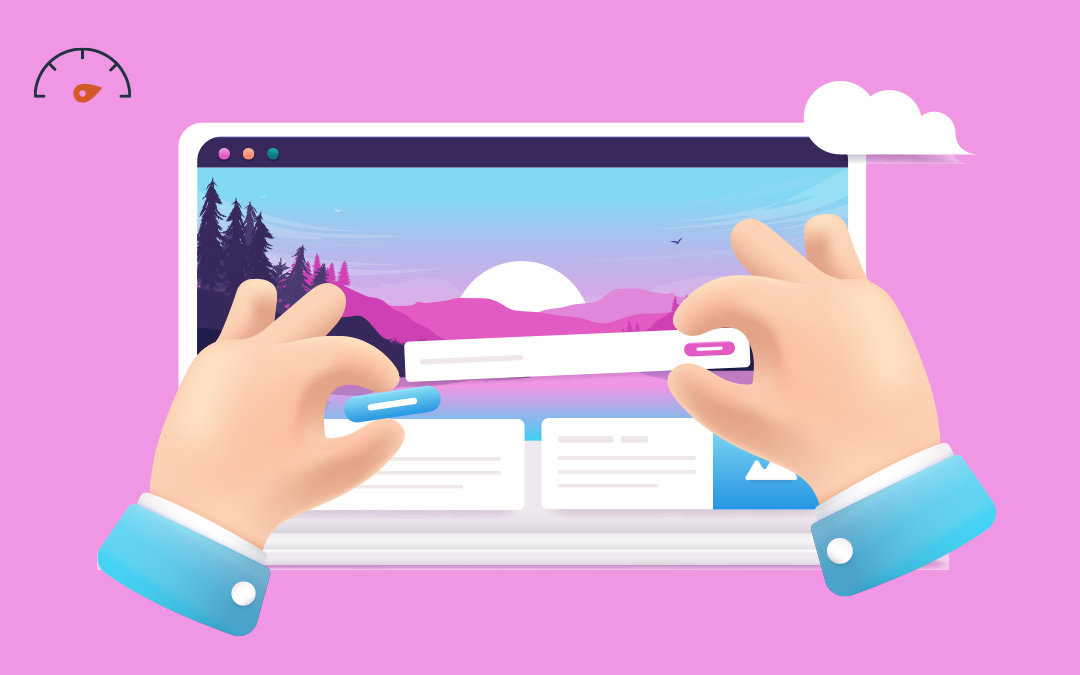Over five billion people use the internet today. That means most of the world is online, including your competitors, so if you’re questioning “Do I need a website for my business?” you’re already behind. Here are all the ways a website can benefit your small business.
- Expands Your Reach
- Makes You Competitive
- Increases Customer Trust
- Gives You Full Control of Your Brand
- Improves Your Customer Service
- Showcases Social Proof
- Offers Free Promotion for Your Products & Services
- Supports Your Digital Marketing Strategies
- Small Business Website FAQs
Expands Your Reach
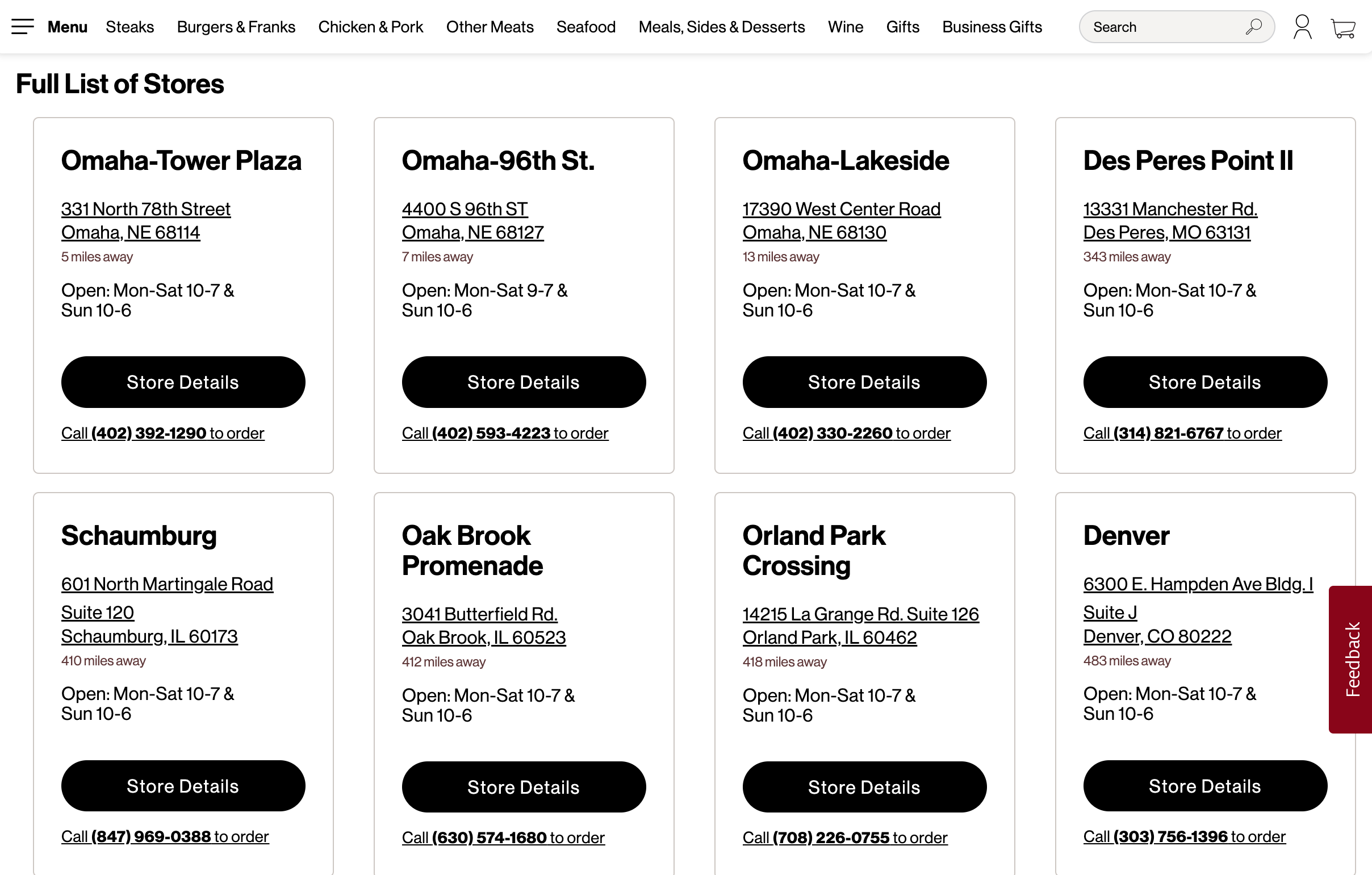
A small business doesn’t have to mean a small customer base. Your physical storefront and traditional marketing methods—like flyers and billboards—might do a lot to bring in new customers, but they only target people in your area. When you have a small business website, people outside of your geographic bubble can discover you online and become customers.
And sure, you can be discovered online in more ways than a website—like through your Google Business Profile, Yelp page, ads, or social media accounts. But websites are the number one way people find and research new businesses, so you want to be on the top-used channel.
Makes You Competitive
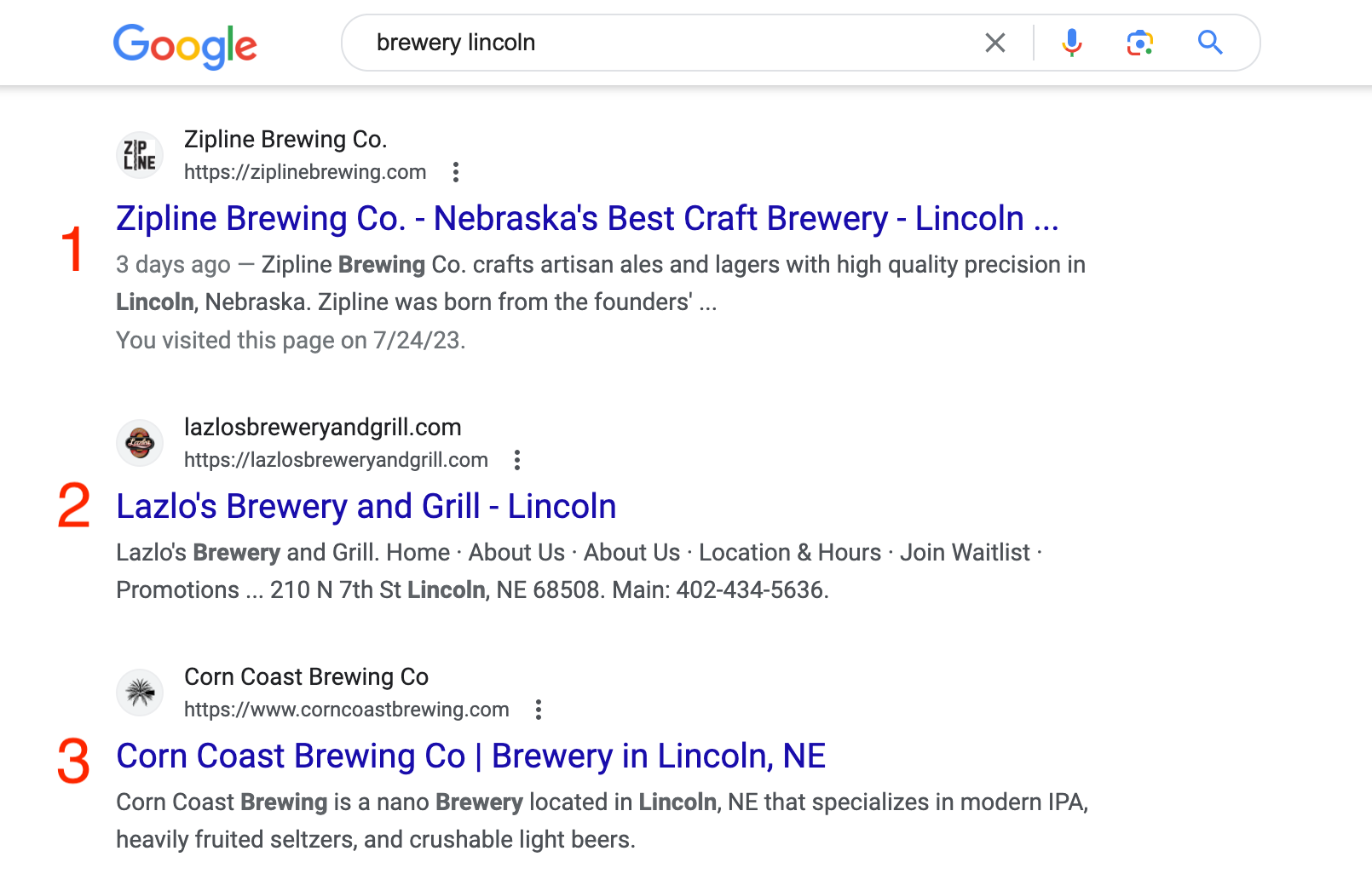
You’ll often find a McDonalds and Burger King on the same block. Without one of them, the other gets all of the customers that are craving fast food burgers and fries. Online is no different.
If your competitors have websites (nearly three out of four small businesses do) and you don’t, they’re getting all of the customers that are looking for your product or service simply because you’re not around. If you want to compete against these brands, you need to establish your online presence and show people you’re an option.
Being competitive online requires good search engine optimization, so here are a few quick SEO tips for your small business website:
- Optimize SEO titles, meta descriptions, and headers by following best practices on length, context, keywords, and more
- Set up URL redirects
- Link internally across your website
- Conduct and implement quality keyword research, using long-tail, branded, and hyperlocal keywords
- Make your website mobile-friendly
- Create individual webpages for each of your products, services, and locations
Increases Customer Trust
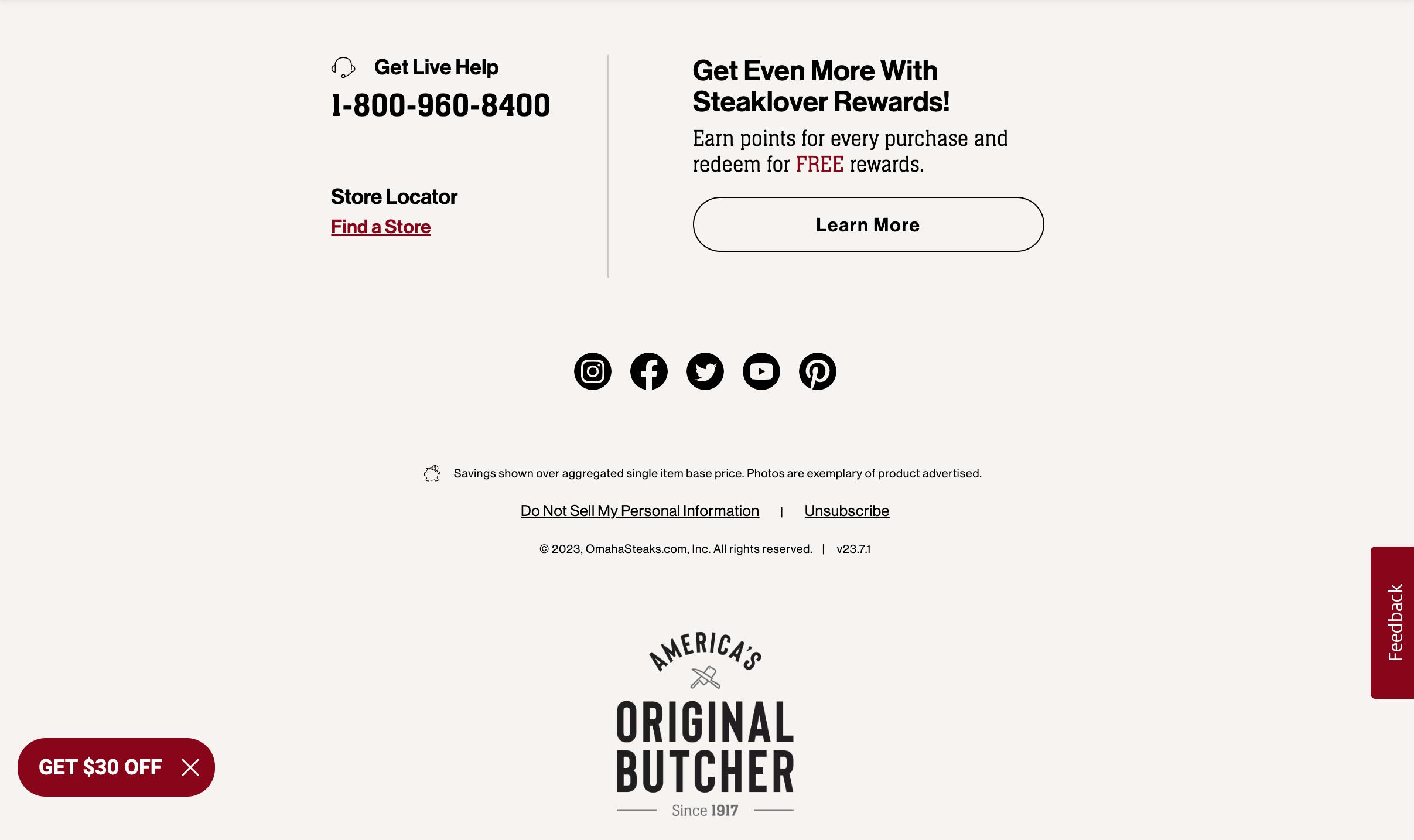
In this digital age, not having an online presence makes consumers trust you less. They might think your business is a scam, fake, suspicious, or inauthentic. Business websites are usually the first place people go to confirm a company is legit and active. Without this confirmation, they likely won’t do business with you.
If you already have an online presence through Google Business Profile, other local listings, or social media accounts, that’s great but not enough. 56% of customers don’t trust these sources as much as your website to have accurate, up-to-date information.
But creating a small business website is only half the battle in gaining customers’ trust. You also have to maintain it. Besides keeping your business details current, here’s what you can do to boost your business website’s credibility:
- Clearly display your contact details
- Upload high-quality, original photos of your location and people
- Use official and consistent business logos
- Add SSL certificates
- Functioning links to social media profiles
- Update your blog with expert contributions
- Include a terms and conditions agreement
- Publish privacy policy pages
Gives You Full Control of Your Brand

You own your website. That means you never have to worry about your account or listing being inexplicably suspended or an entire platform collapsing or no longer supporting your business page. Your website will be up and available for as long as you want it to be.
And you have total creative freedom. You can build your small business website however you want without limits to the type, length, or nature of your content. You’ll have greater control of your brand voice and visual personality. You don’t have to stay within the character count of a social media bio or the structure of a Yelp page. You can use branded colors, fonts, logos, and writing styles to achieve a consistent look and feel, which builds great brand awareness across platforms.
Our Digital Marketing Strategist Grayson McCartney explains how Pixel Bakery Design Studio does this well.
“This site represents its brand through an eye-catching and efficient design with a really pleasurable user experience. Users can seamlessly explore the company’s services without being overwhelmed by dense content. They also have plenty of proof of their animation work that catches a user at just the right time in their buying journey.”
![]()
Plus, you don’t have to wait for changes to be approved or pushed live. If something shifts for your company, you can update the details on your website immediately.
Improves Your Customer Service
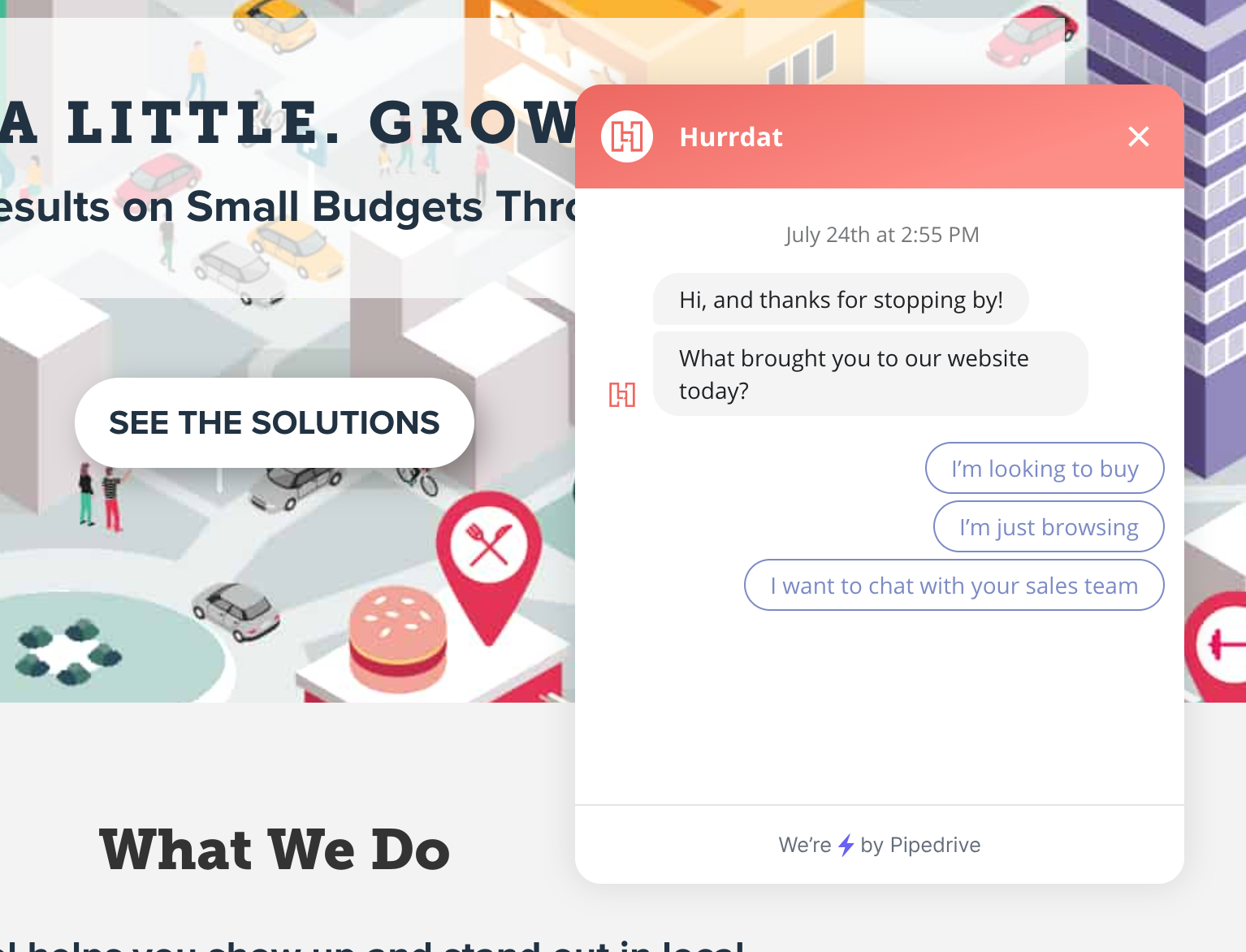
It’s great to be available in store and over the phone to assist customers, but what about the people who need help outside of working hours? Small business owners and employees can’t be expected to be available 24/7, but a business website can be. You can even let your website do the legwork when it comes to returns, scheduling, and other common customer service needs. Here are a few ways you can step up your customer service game on your website:
- Write product and service pages. These will be the first areas customers check for answers, so make sure these are completely filled out with correct, updated information.
- Create an FAQ page. For common troubleshooting issues, this page will be the go-to. You can collect repeat questions from reviews and customer interactions.
- Use a customer service inquiry form. For any other issues customers might have, you can embed a form into your site to collect customer service requests outside of business hours.
Showcases Social Proof
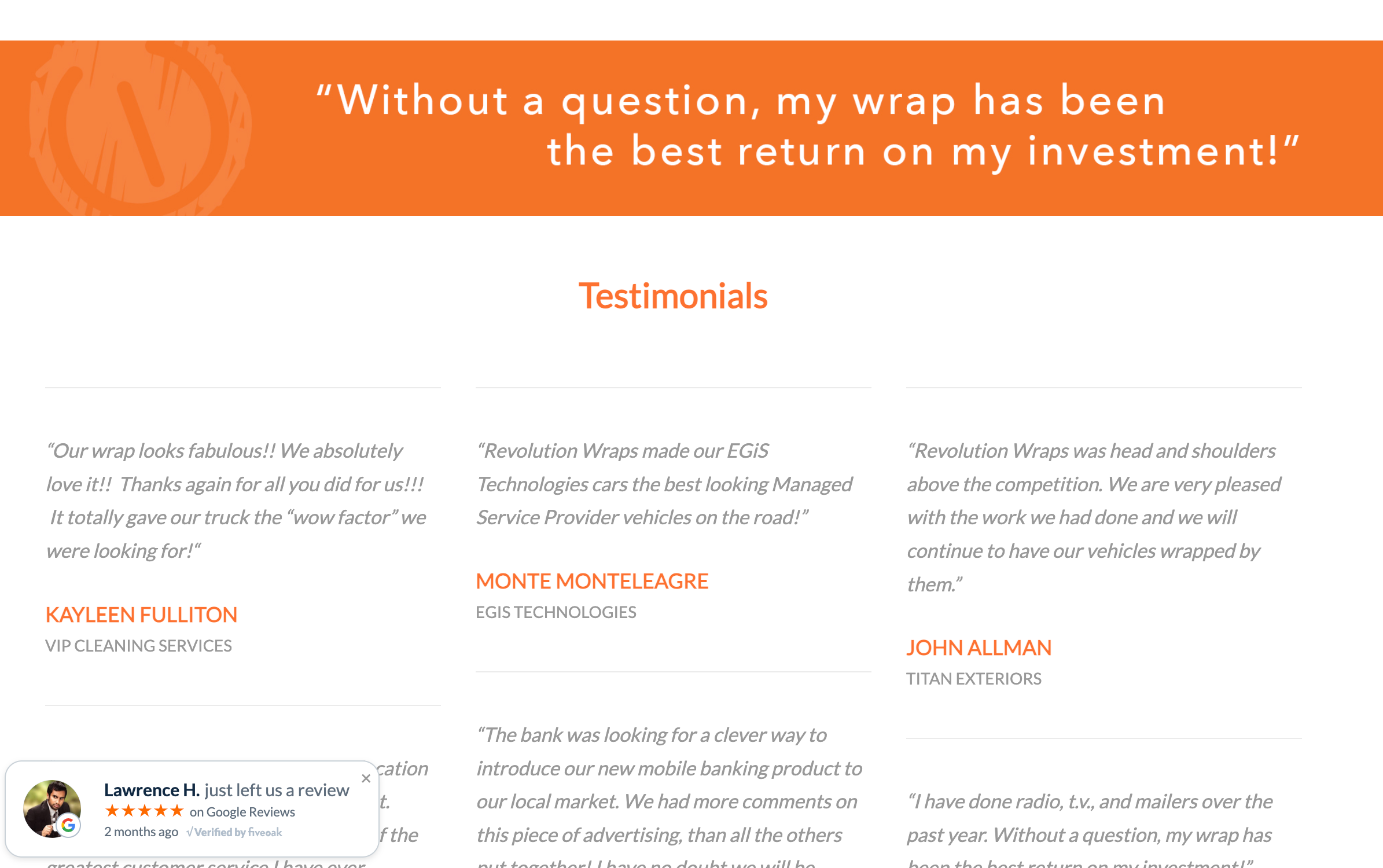
Customer reviews are important to people researching your company. Most trust reviews just as much as personal recommendations from friends and family, and about 95% won’t make a purchase until they’ve read reviews.
For that reason, they’re one of the most influential forms of social proof, a psychological phenomenon where people copy the actions of others to be perceived as normal. So, the more evidence you can show that current and repeat consumers love your business, the more new customers you’ll attract.
A small business website compiles your social proof into one easily accessible location, rather than having details spread out across the internet. With a website, you make it more convenient for people to vet your brand.
Along with reviews, you should also consider adding these types of social proof to your small business website:
- Industry expert recommendations
- Celebrity endorsements
- Video testimonials
- Case studies
- Number of customers helped
- Official certifications
- Awards and accolades
- User-generated content
Offers Free Promotion for Your Products & Services
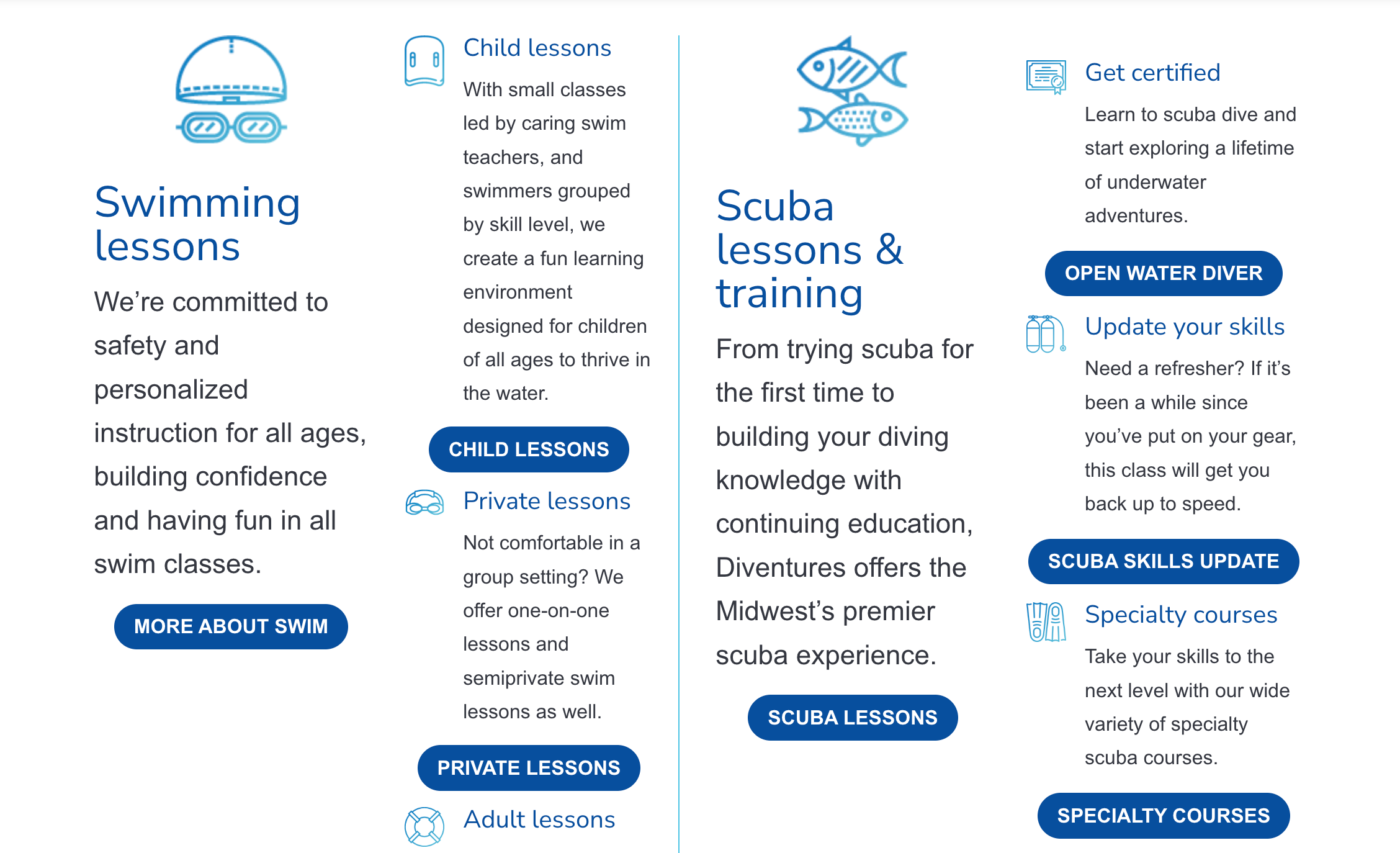
There are many platforms you can advertise products and services on with organic marketing strategies, but your website is one of the most long-term and low-cost options.
Digital advertising costs you money to show your ads to more people–and plenty of times, you’ll still have to compete with other businesses also paying to have their ads shown. If another business outbids you, their ad could perform better than yours. Other organic marketing strategies like local business listings may not promote your items long-term, or even at all.
On your website, make sure you have separate pages devoted to each product and service. When you have promotions on specific products and services, put those on these pages too, or even on your website’s front page.
Hurrdat’s Digital Marketing Strategist, Grayson McCartney, uses LANDED Travel as a small business website example that entrepreneurs should copy if they offer comprehensive, high-end packages.

“This site does an excellent job at selling their services through high-quality video and photo content. LANDED Travel strikes the perfect balance between keyword-optimized content and stunning visual imagery. It’s the perfect template for a small business with luxury products and services.”
Supports Your Digital Marketing Strategies
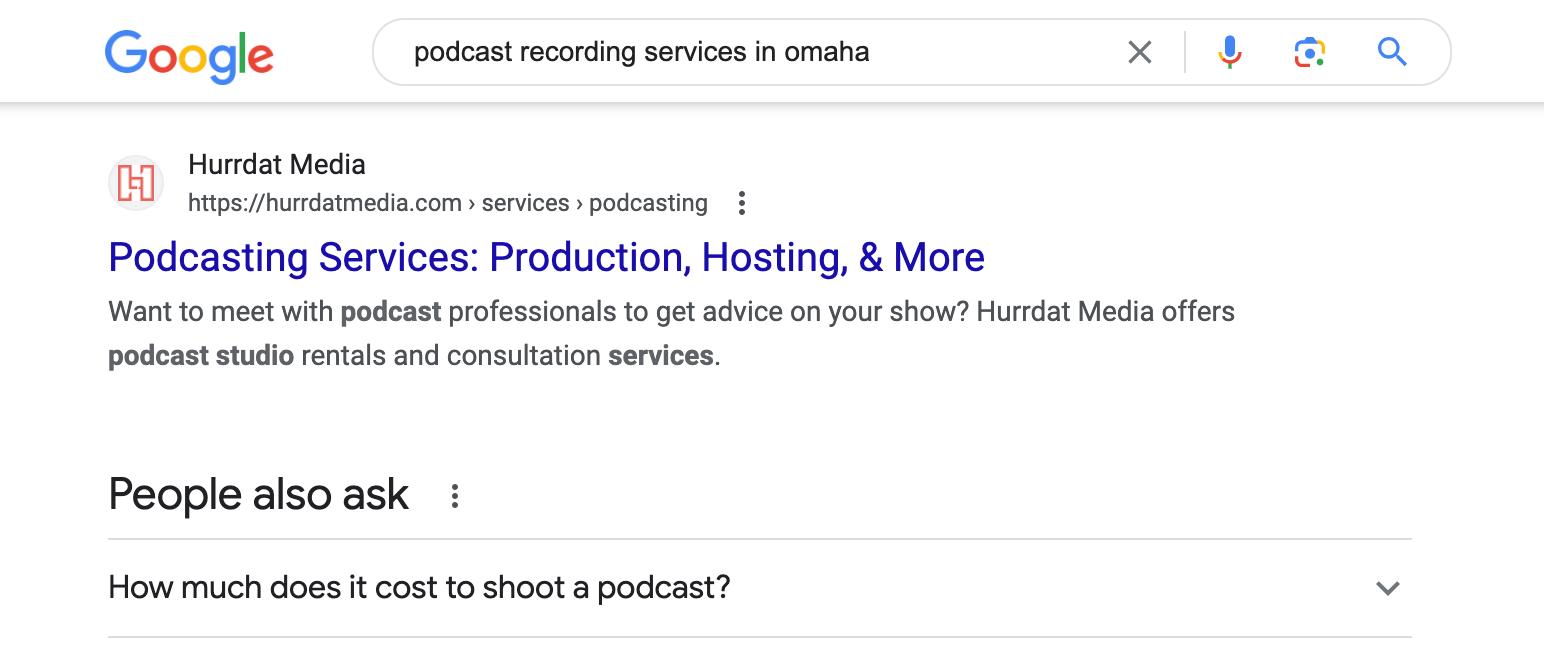
When you create a digital marketing campaign, what do you want your customers to do? Whether you want them to make a purchase, sign up for your email list, contact your business, or visit your store in person, you need them to take some sort of action for your marketing strategy to be successful. Website landing pages are the best place to send users to complete those desired actions, and they give your marketing efforts a more centralized goal.
In other words, a small business website should be the final destination in your customer’s journey. These intent-specific webpages give them a distraction-free nudge they need to convert. That’s why every channel—from your email to your social media—should link to your website, sending your customers further down the sales funnel.
McCartney shares a traditional small business website example that’s simple, inexpensive, and still packs a big punch.
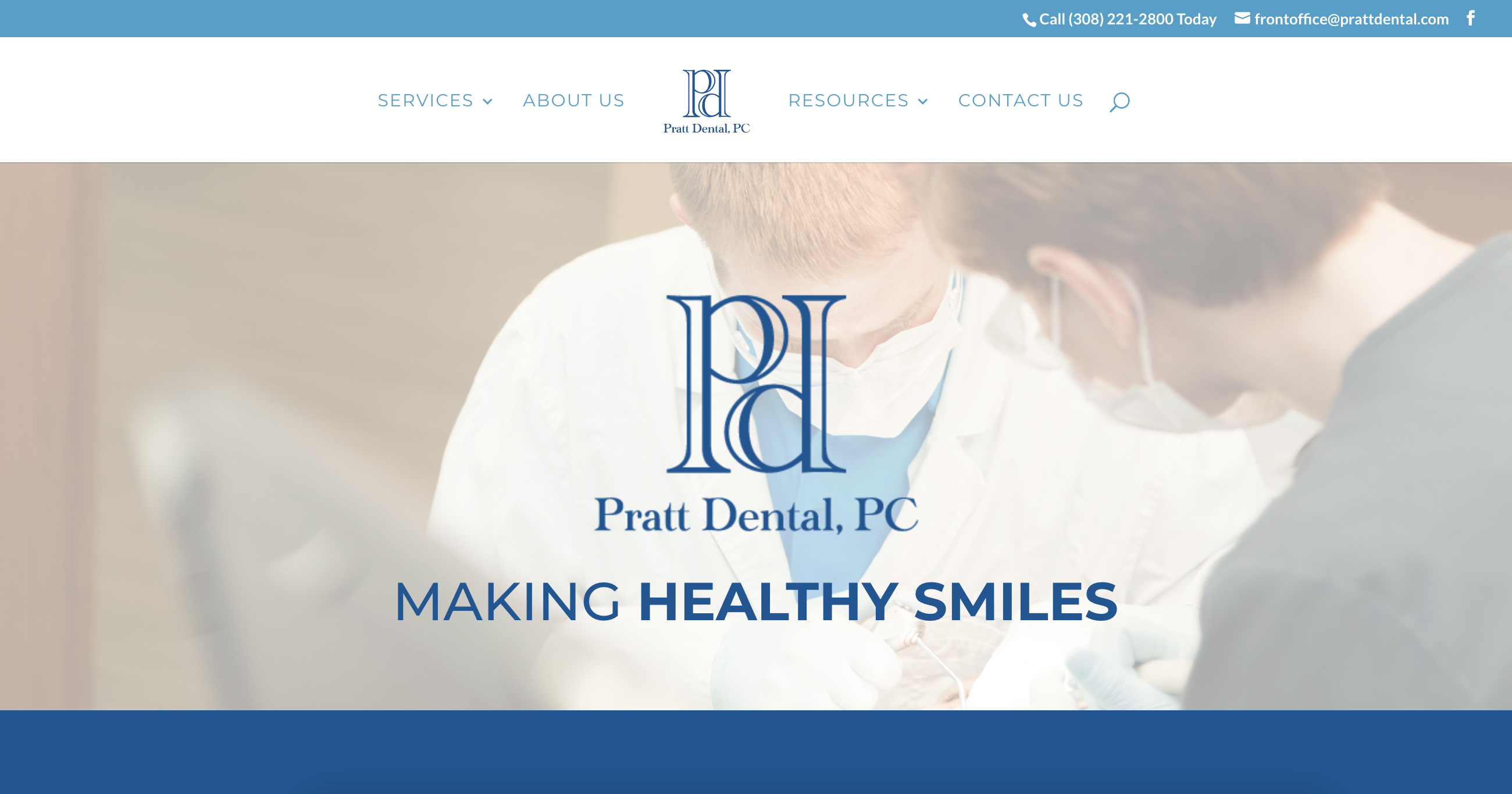
“Pratt Dental proves that you don’t need a big budget to succeed online in a local market. The color scheme is simple, on-brand, and easy on the eye. Their on-page content and meta information are optimized using local SEO best practices. And their copy is brief, informative, and always followed by a CTA that moves a user to key areas of their site or straight to a conversion.”
Small Business Website FAQs
How Much Does a Small Business Website Cost?
The cost of a small business website that’s 8 to 16 pages can range from $500 to $9,000 depending on how much outside help you need. Your yearly expenses go towards a domain name (between $0 and $20), web hosting (between $30 and $500), SSL certification (around $250), maintenance (between $400 to $60,000), and design (whether DIY or from a freelancer/agency). There are plenty of free website builders like Wix, Squarespace, and GoDaddy with paid upgrade options. Hiring a professional web designer can run upwards of $5,000, but our Local Search Fuel small business website plans start at just $654 a month.
How Do I Create My Own Business Website?
Start by choosing a web builder and either craft a custom website layout or choose a template on your hosting platform. Then, design your website with your logo, brand colors, and a vibe that matches your physical business (if you have one). If you need help with design inspiration, take a look at these top web design trends!
Which Small Businesses Need a Website?
There are obvious types of small businesses that need websites like restaurants, lawyers, doctors, dentists, and accountants, but even home service businesses like electricians, plumbers, landscapers, and cleaners can benefit from a website. Retail stores, e-commerce companies, online coaches, auto repair shops, and real estate agents are more strong candidates for a small business website. We build websites for restaurants, banks, dentists, electricians, and everyone in between. View the Local Search Fuel case studies for more information on our past client success.
What Are Good Small Business Website Examples?
There are so many excellent small business website examples available online that have effective design, functionality, and user experience. We always recommend running a competitive analysis in your industry first to get a feel for what is and isn’t working for your competitors (and how your business could do better), but you can also pull inspiration from our Digital Marketing Strategist Grayson McCartney’s favorite local websites, Pixel Bakery Design Studio, Pratt Dental, and LANDED Travel.
Ready to get started marketing your business with an effective small business website? Local Search Fuel by Hurrdat offers services to help with small business website development and ongoing local SEO so you can effectively grow your business. Get started today!

Stefanie Vanderbeek
Stefanie Vanderbeek is a content strategist and writer who specializes in long-form digital content and website SEO optimization. Stefanie earned her Bachelor of Journalism from the University of Nebraska-Lincoln in Advertising and Public Relations in 2021. In her free time, you can find Stefanie reading, deep diving into video game lore, singing in her professional vocal group, or traveling the world!
